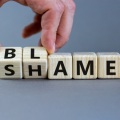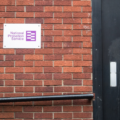
Parents are essential to a social worker’s job as they work to make home a safe place for a child to live in.
However, the weight of co-operation with children’s services may fall more heavily on the mother.
Mothers are often viewed by society as the parent primarily responsible for nurturing, feeding, caring for and protecting their children. So much so that fathers often escape accountability – the importance of their role diminished in comparison.
Social workers are not exempt from that bias, according to social worker and trainer Vicki Shevlin, who wrote about mother blaming for Community Care recently.
Shevlin wrote that she had also once found herself making the same mistake as a young newly qualified social worker.
“Without realising it, influenced by others on my team, I began focusing all my initial contact on mothers,” she wrote.
“I was arranging home visits based on when they were at home with their children, relying on them to share information and give consent, and, worst, holding them accountable for implementing the ‘safety’ in safety plans.”
Mothers held “entirely responsible” for the care of children
When asked how far social workers held mothers “entirely responsible for the care and safety of their children by practitioners” in a Community Care poll that amassed 589 votes, most professionals believed this was the case.
Over half of respondents (58%) said “very” and 26% “moderately”; only 8% said “not at all”.
‘Complexities reduced to “mother’s failure”’

Photo by Feng Yu/ AdobeStock
Under Shevlin’s article, mothers and practitioners alike took to the comments to share their frustration with the current system.
Ryan Webb called instances of mother-blaming by services “incredibly disheartening” and “what appears to be a fundamental institutional bias against mothers in this distressing context”.
“Fathers are too often not contacted in assessments,” said Clara. “Domestic abuse and mothering occurs in a context which connects to wider societal factors. Poverty, lack of affordable housing, parents being atomised from support networks [and] lack of access to adult mental health services are increasingly a part of this landscape.
“In the worst instances, these complexities are reduced to simple conceptions of ‘mother’s failure’ and ‘mum’s chaos’. The person is not even addressed by their name but becomes the blanket term of ‘mum’. Quality assurance is too often driven by tick boxing, blame and hypothesis and narrow conceptions of risk.”
‘I was restricted from working with children as I couldn’t protect my own’
Practitioners who found their families involved with services were not exempt from this issue, with a few sharing their story and disappointment at how they had been treated.
One professional who faced domestic abuse, harassment and stalking said her experience led her to be fearful of alerting and trusting authorities.
“My children were placed in child protection, I was blamed and restricted from working with children as I couldn’t protect my own from future emotional abuse or potential. I couldn’t teach while I had to prove that I was a good mother,” she said.
“The focus was not on the father not turning up or not engaging or being held accountable. I had to prove that I could keep my children safe, attend courses and meetings on my own without support.
“Mothers need a supportive service, trustworthy and not to experience fear and worry. I sincerely hope practitioners start acknowledging the need for change, rather than blaming the victim.”
Candice left social work after being blamed for her “daughter’s special needs and vulnerabilities” by her local authority.
“It was hypothesised that I must be emotionally abusing her, hence her behaviour,” she said. “Yet my daughter is a young person with attention deficit hyperactivity disorder (ADHD)/ autism spectrum disorder (ASD), speech and language disorder and multiple additional needs. With every police, ambulance call-out and incident at school, I was blamed.”
She added that, as a black woman she was also judged for her competence as a mother because of her appearance.
“Any mother whose child has been in and out of A&E over 20 times for suicidal ideations, alcohol intoxication and emotional dysregulation would have been broken. It felt as though the social workers and nurse could not empathise with me because they are white and I am a black woman with a nose ring, tattoos and long hair.”
What needs to change
In her article, Shevlin said that change starts with “social work leaders who are committed to cultural change”.
“When effort is not put into trying to contact perpetrators, it is a choice, albeit one exacerbated by high caseloads, emotional stress and organisational pressure. Practitioners have to be supported in this.”
She advised social workers to abandon problematic terminology such as ‘mother’s failure to protect’ or ‘father not engaging’ and start conversations in their workplace about mother blaming to facilitate change.
She also stressed that social workers take time to understand the parent and the environment their child is living in.
“When you understand a child’s world and lived experience, you can gain insight into complex relationships that can be harmed when we make reductive assumptions.”
Have you ever found yourself putting too much focus on the mother during a case?




 Family help: one local authority’s experience of the model
Family help: one local authority’s experience of the model  ‘I spent the first three months listening’: how supportive leadership can transform children’s services
‘I spent the first three months listening’: how supportive leadership can transform children’s services  How senior leaders in one authority maintain a culture of excellence
How senior leaders in one authority maintain a culture of excellence  How staff support ensures fantastic outcomes for children and families
How staff support ensures fantastic outcomes for children and families  Workforce Insights – showcasing a selection of the sector’s top recruiters
Workforce Insights – showcasing a selection of the sector’s top recruiters 

 Facebook
Facebook X
X LinkedIn
LinkedIn Instagram
Instagram
As a male social worker in the 3rd year of a apprenticeship I always try to speak with the male carer, whether they are in the household or they have separated, but it is usually the visible parent that you see and complete assessments with. It takes effort and time to contact people who are part of the child’s life and if the other parent doesn’t give consent to speak to them it can be really difficult to get the full holistic picture that you need to obtain.
I have been a social worker of several years in child protection. It is common to focus much of our assessment on mothers although this is usually for good reason. In my experience, when parents were separated, the mother is usually the child’s primary carer. In the case of domestic abuse, fathers (if they were the alleged abuser, and living separately) would often refuse to speak with children’s social care. This would usually be when they were subject to an ongoing police investigation. If the fathers are not already under services – such as probation or substance misuse – it is difficult to “catch” them in the community or at their other appointments.
This makes our jobs as social workers difficult, leaving us with no choice but to focus on the mother as a “protective parent”. I understand this can then lead to the mother feeling oppressed/overwhelmed by services and the level of responsibility placed on them. I appreciate this may bring back feelings of the abuse they have experienced.
However, we should strike a balance here. Mother’s have a responsibility to safeguard their child, or at the very least, being open and honest about what is going on in their life. Time and time again, I have worked with families where mothers have not been open and honest about their relationship with the abusive father – I.e. allowing the child to have contact and going against court orders/written agreements; allowing the father to stay at the home against social work recommendations; not reporting domestic abuse incidents; and not being honest about the status of their relationship.
I understand there can be reasons for the mother not being honest with services (I.e. threats from the abuser/coercive control), however, we need to keep the child’s safety at the forefront of our intervention, and be careful not to “tip-toe” around parents. This has been a factor in child deaths and serious case reviews.
(PS – I am referring to “mothers” as per the title of this article, but I realise that the same thing can happen to different genders)